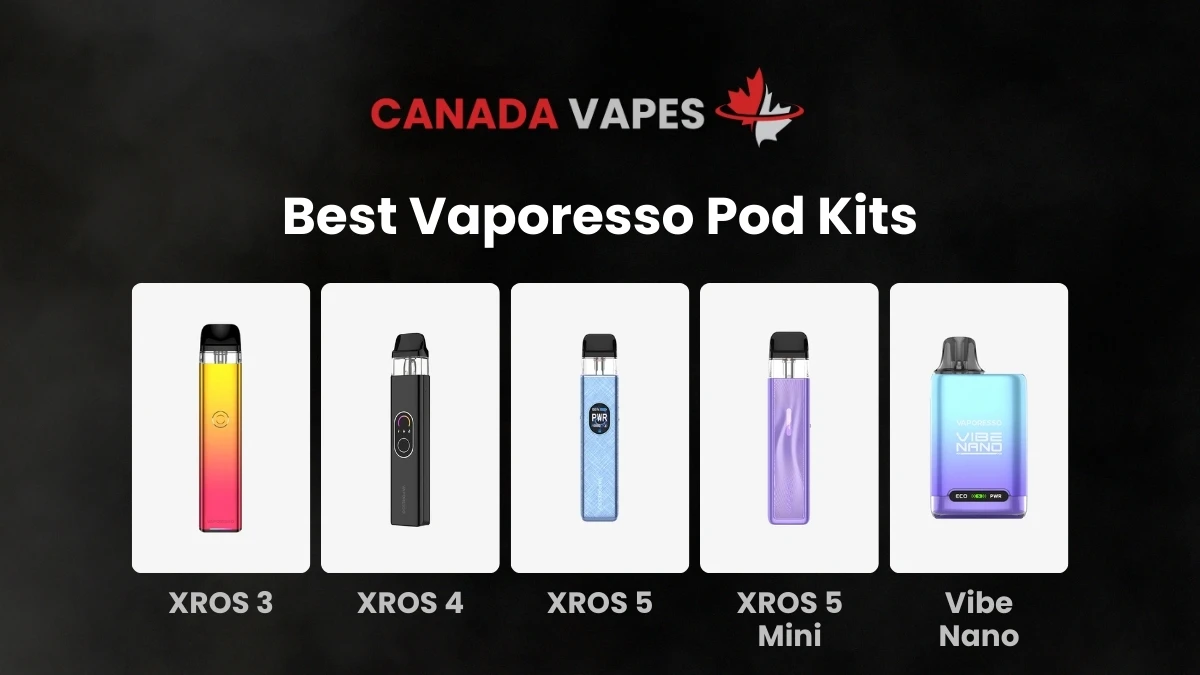OUR Two cents:
This is not a surprise to us, and is something that has happened in other countries, including the US, and Europe. In the United States, Blu e-cigs was purchased by Fontem Ventures, a subsidiary company of Imperial Tobacco. Using the Blu brand, Imperial tobacco now sells vaping supplies in the US, UK, France and Italy. What is the issue with tobacco companies owning vape companies? You might think this to be a good idea, and on the surface this may seem so. Truthfully however, allowing big tobacco into the vaping sales would have detrimental affects on vaping in Canada, of this there is no doubt.
For the entire history of big tobacco, they have been chronic liars, paying off doctors, settling out of court settlements, creating pseudo laboratories to provide fake testimonials and studies about the affects of smoking and cigarettes. Inventing ‘light’ and ‘extra light’ versions of their products to insinuate safety, and so much more. Just look at the litigation history of tobacco over the years. Do you want your vaping supplies controlled by such an organization? They even used Santa Clause and the Flintstones to advertise smoking, discussing their safety and even positive benefits, paying doctors, actors, and even athletes to promote their brand. Just watch this quick video as a reminder.
By contrast, the vast majority of Canadian vaping companies, Canada Vapes included, have always been primarily focused on providing our products and services to customers who are legitimately looking to stop smoking cigarettes. We sell vapes as an alternative to cigarettes. Our goal is not to create new customers who are not smokers or vapers. The corporation of big tobacco certainly will do this, and sneakily and manipulatively pursue the goal of increasing vaping in non-smokers and non-vapers to pad their bottom line profits.
Just look at the advertising blu e-cigarettes have done since being purchased by big tobacco, making vaping look ‘ultra cool’ with named celebrities like Stephen Dorf in their advertisements. And Jenny McCarthy’s ‘without the guilt‘ video. Just look at their provocative magazine advertising here, using a scantily clad bikini bottom with the tagline “slim, charged and ready to go” to advertise vaping.
It is a guise that big tobacco wants to give their customers a ‘safer alternative’; what they really want is control of all nicotine delivery systems. They will want to grow the vaping community, they will target non-smokers and non-vapers, trying to increase their profits. Tobacco and vaping are two different worlds, with completely different goals, and completely different affects on people. One is pitted against the other, with vaping’s goal to reduce smoking. Its like a McDonald’s selling courses on how to quit going to fast food restaurants. There is an evil in the methodology of big tobacco, and anything they say to the contrary is nothing but another one of their many lies they have told over the years.
What is the issue with tobacco companies owning vape companies? You might think this to be a good idea, and on the surface this may seem so. Truthfully however, allowing big tobacco into the vaping sales would have detrimental affects on vaping in Canada, of this there is no doubt.
For the entire history of big tobacco, they have been chronic liars, paying off doctors, settling out of court settlements, creating pseudo laboratories to provide fake testimonials and studies about the affects of smoking and cigarettes. Inventing ‘light’ and ‘extra light’ versions of their products to insinuate safety, and so much more. Just look at the litigation history of tobacco over the years. Do you want your vaping supplies controlled by such an organization? They even used Santa Clause and the Flintstones to advertise smoking, discussing their safety and even positive benefits, paying doctors, actors, and even athletes to promote their brand. Just watch this quick video as a reminder.
By contrast, the vast majority of Canadian vaping companies, Canada Vapes included, have always been primarily focused on providing our products and services to customers who are legitimately looking to stop smoking cigarettes. We sell vapes as an alternative to cigarettes. Our goal is not to create new customers who are not smokers or vapers. The corporation of big tobacco certainly will do this, and sneakily and manipulatively pursue the goal of increasing vaping in non-smokers and non-vapers to pad their bottom line profits.
Just look at the advertising blu e-cigarettes have done since being purchased by big tobacco, making vaping look ‘ultra cool’ with named celebrities like Stephen Dorf in their advertisements. And Jenny McCarthy’s ‘without the guilt‘ video. Just look at their provocative magazine advertising here, using a scantily clad bikini bottom with the tagline “slim, charged and ready to go” to advertise vaping.
It is a guise that big tobacco wants to give their customers a ‘safer alternative’; what they really want is control of all nicotine delivery systems. They will want to grow the vaping community, they will target non-smokers and non-vapers, trying to increase their profits. Tobacco and vaping are two different worlds, with completely different goals, and completely different affects on people. One is pitted against the other, with vaping’s goal to reduce smoking. Its like a McDonald’s selling courses on how to quit going to fast food restaurants. There is an evil in the methodology of big tobacco, and anything they say to the contrary is nothing but another one of their many lies they have told over the years.
 What is the issue with tobacco companies owning vape companies? You might think this to be a good idea, and on the surface this may seem so. Truthfully however, allowing big tobacco into the vaping sales would have detrimental affects on vaping in Canada, of this there is no doubt.
For the entire history of big tobacco, they have been chronic liars, paying off doctors, settling out of court settlements, creating pseudo laboratories to provide fake testimonials and studies about the affects of smoking and cigarettes. Inventing ‘light’ and ‘extra light’ versions of their products to insinuate safety, and so much more. Just look at the litigation history of tobacco over the years. Do you want your vaping supplies controlled by such an organization? They even used Santa Clause and the Flintstones to advertise smoking, discussing their safety and even positive benefits, paying doctors, actors, and even athletes to promote their brand. Just watch this quick video as a reminder.
By contrast, the vast majority of Canadian vaping companies, Canada Vapes included, have always been primarily focused on providing our products and services to customers who are legitimately looking to stop smoking cigarettes. We sell vapes as an alternative to cigarettes. Our goal is not to create new customers who are not smokers or vapers. The corporation of big tobacco certainly will do this, and sneakily and manipulatively pursue the goal of increasing vaping in non-smokers and non-vapers to pad their bottom line profits.
Just look at the advertising blu e-cigarettes have done since being purchased by big tobacco, making vaping look ‘ultra cool’ with named celebrities like Stephen Dorf in their advertisements. And Jenny McCarthy’s ‘without the guilt‘ video. Just look at their provocative magazine advertising here, using a scantily clad bikini bottom with the tagline “slim, charged and ready to go” to advertise vaping.
It is a guise that big tobacco wants to give their customers a ‘safer alternative’; what they really want is control of all nicotine delivery systems. They will want to grow the vaping community, they will target non-smokers and non-vapers, trying to increase their profits. Tobacco and vaping are two different worlds, with completely different goals, and completely different affects on people. One is pitted against the other, with vaping’s goal to reduce smoking. Its like a McDonald’s selling courses on how to quit going to fast food restaurants. There is an evil in the methodology of big tobacco, and anything they say to the contrary is nothing but another one of their many lies they have told over the years.
What is the issue with tobacco companies owning vape companies? You might think this to be a good idea, and on the surface this may seem so. Truthfully however, allowing big tobacco into the vaping sales would have detrimental affects on vaping in Canada, of this there is no doubt.
For the entire history of big tobacco, they have been chronic liars, paying off doctors, settling out of court settlements, creating pseudo laboratories to provide fake testimonials and studies about the affects of smoking and cigarettes. Inventing ‘light’ and ‘extra light’ versions of their products to insinuate safety, and so much more. Just look at the litigation history of tobacco over the years. Do you want your vaping supplies controlled by such an organization? They even used Santa Clause and the Flintstones to advertise smoking, discussing their safety and even positive benefits, paying doctors, actors, and even athletes to promote their brand. Just watch this quick video as a reminder.
By contrast, the vast majority of Canadian vaping companies, Canada Vapes included, have always been primarily focused on providing our products and services to customers who are legitimately looking to stop smoking cigarettes. We sell vapes as an alternative to cigarettes. Our goal is not to create new customers who are not smokers or vapers. The corporation of big tobacco certainly will do this, and sneakily and manipulatively pursue the goal of increasing vaping in non-smokers and non-vapers to pad their bottom line profits.
Just look at the advertising blu e-cigarettes have done since being purchased by big tobacco, making vaping look ‘ultra cool’ with named celebrities like Stephen Dorf in their advertisements. And Jenny McCarthy’s ‘without the guilt‘ video. Just look at their provocative magazine advertising here, using a scantily clad bikini bottom with the tagline “slim, charged and ready to go” to advertise vaping.
It is a guise that big tobacco wants to give their customers a ‘safer alternative’; what they really want is control of all nicotine delivery systems. They will want to grow the vaping community, they will target non-smokers and non-vapers, trying to increase their profits. Tobacco and vaping are two different worlds, with completely different goals, and completely different affects on people. One is pitted against the other, with vaping’s goal to reduce smoking. Its like a McDonald’s selling courses on how to quit going to fast food restaurants. There is an evil in the methodology of big tobacco, and anything they say to the contrary is nothing but another one of their many lies they have told over the years.










